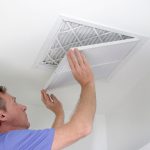
How Pets Can Damage Your HVAC Unit Inside and Out
Your furry four-legged friend might be putting a damper on your HVAC’s efficiency by causing HVAC damage. From nose to tail, your pets can do some serious damage to both your inside and outside unit.
When the Fur Flies
Your heating and air unit’s filter plays two main roles. The first is to remove airborne particles, like fur, to improve indoor air quality. The second is to keep dust and debris, like fur, out of the unit itself. A dirty filter will restrict air flow to the unit and cause it to work harder to keep you cool. A very clogged filter, Carrier says, can lead to short cycling (the unit turning off and on rapidly) or shutting down all together.
To prevent HVAC damage, change your filter every couple of months. You might consider changing it more frequently if you have more than one pet, larger animals or if that fluffy fur is particularly long. Also consider how long your system is running – the longer it runs, the more frequently you need to change the filter.
Also clean your home well and keep your vents free of dust and dander.
HVAC Damage from Potty Breaks
You might not think of where your dog routinely does his business, but enough exposure to pet urine can corrode the condensing coil. Here’s how it works. The outside compressor of your air conditioner cools refrigerant from the indoor unit, allowing it to absorb more heat from your home. The compressor is surrounded by metal fins that help improve the unit’s efficiency by increasing the surface area of the coil, which allows it to dissipate heat more quickly.
Pet urine can corrode the fins and, with enough exposure, cause the coil inside to leak. Newer units may have heavy metal grates on the outside, but they’re just hiding the internal damage. Best case scenario, your pup’s causing the unit to work harder and run up higher utility bills. Worst case, you’re looking at replacing the entire exterior unit.
Prevent HVAC damage to the outside compressor by fencing off the compressor with wooden or metal panels. Choose slatted or latticed panels for the three exposed sides of the unit and carry them all the way to the edge of the house. Panels come in standard sizes at most home improvement stores. They provide protection from Fido while still allowing air to flow around the unit. If your unit is visible from the street, you may need to get permission from a homeowners or civic association, so make sure to check the rules and regulations before you build.
You could also use plants to make a living fence, but be careful. The unit needs plenty of room to breathe and growing shrubbery can choke the unit’s air flow. Choose plants that will stay three to five feet from the unit at maturity and that won’t attract wildlife like deer and rabbits. Pick compact species that will keep even determined dogs away from the compressor.
Also consider using repellent sprays or leashing, or training your dog to go elsewhere.
Chewing and Scratching
Putting up a solid fence around your outside unit will also keep your pets from chewing through electrical wiring on the outside unit. A common target of canine antics are the thermostat wires. Fencing, of course, will keep them away. But if it’s not an option or if they’re particularly determined, try a repellent spray or a little extra wrapping.
Wildlife
Your compressor unit is a warm, sheltered place, which makes it perfect for creepy critters to take up residence, especially in cooler weather. Snakes, rodents, birds, ants, wasps and other creatures (and their homes) can damage both the outside panels and the fan blades in your unit. Squirrels, rabbits and other critters can also target your electrical wiring. Look for signs of animal activity around your unit as well as bent or damaged fins or grates. Keep your unit clean of debris — this also helps with efficiency — to make it less hospitable.
If you’ve got existing damage to your unit or you’re worried about animal HVAC damage you can’t see, have it checked by a service professional. Barineau’s Total Comfort Service Program includes routine inspections as well as discounts and same-day service. Call 850-580-4029 or click here to enroll in the service program.




